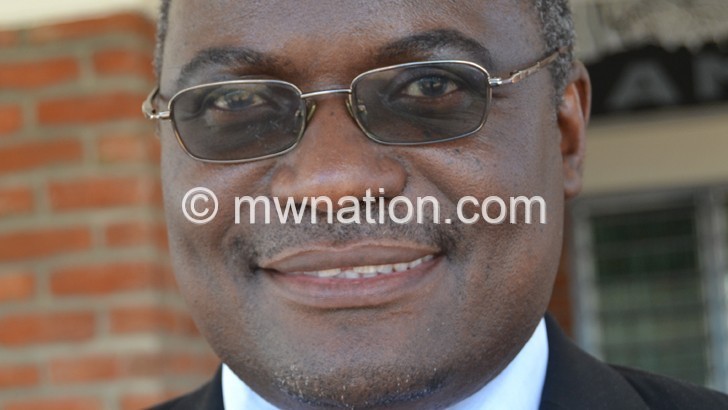Extra gear for covid-19 fight
Ministry of Health has asked the Department of Immigration
and Citizenship Services to restrict entry across borders to only returning residents and those on essential travel as a precautionary measure against Covid-19.
In a letter dated June 12 2021, Ministry of Health Principal Secretary Charles Mwansambo said those who do not fit into these categories must be refused entry into Malawi.
The letter urges the Department of Immigration to refuse entry people who are not Malawian citizens and those who do not hold a Malawian resident permit or are not domiciled or ordinarily resident in Malawi.

Reads the letter in part: “In furtherance of Section 38, a person who (a) Is not a citizen of Malawi; (b) Does not hold a resident permit for Malawi; (c) Is not domiciled or ordinarily resident in Malawi; (d) Is not part of a team of medical personnel that is required to provide medical services in Malawi;
“(e) is not a member of the diplomatic or consular staff of a country that is accredited to Malawi or in transit to another country; or (f) Is not a spouse, child or dependent of a person referred in paragraphs and, (e) shall be refused entry into Malawi, except as otherwise provided.”
The exception provided in Sub-rule 2 is for people who are members of an organisation intending to support, supporting or implementing any Covid-19- related intervention, but also that they are drivers of a vehicle, cabin crew of an aircraft or vessel transporting essential goods.
Further reads the letter: “Please intensify Covid-19 control measures in all border posts in line with our Covid-19 Prevention, Containment and Management Rules 2020.
“All travellers are required to produce a negative PCR Covid-19 test done not more than 72 hours before arrival except for truck drivers and their assistants whose negative PCR test is valid for up to 14 days as per the Comesa-ECSA-Sadc Tripartite Agreement. Those with no Covid-19 test certificates should be tested on entry.”
In an interview yesterday, Mwansambo said with neighbouring countries such as Zambia reporting high Covid-19 cases which could be the beginning of the third wave, it was important that Malawi intensifies control
efforts at all levels.
He called on the citizenry to make it their responsibility to follow Covid-19 protocols, saying people should not wait for law enforcement agencies to start following the rules.
Mwansambo said: “We need all of us to play our rightful roles. You heard about people who were intercepted at Chikangwa from Bangladesh.
“It is easy to control those who come through normal borders, but for these others, our security agencies need to play an important role in intercepting them.”
The measures follow confirmation of the third wave in Zimbabwe, South Africa and Zambia where more cases and deaths are being recorded on a daily basis.
Last week, Presidential Task Force on Covid-19 co-chairperson Dr Wilfred Chalamira Nkhoma decried that the Immigration Department was letting them down on Covid-19.
He said: “We have seen even after saying those from the Indian sub-continent should not come unnecessarily, unless it is some essential trip, but we have had incidences where people from that side of the globe would still come through to Malawi through the Immigration Services.”
O n h is part , epidemiologist Dr Titus Divala said Mwansambo was on the right side of evidence-based practice, saying careful management of all land and air borders is an essential part of Covid-19 transmission control.
He said: “This, and the recent restrictions on repatriations, also shows that as a country we are learning from our past mistakes because the outbreak triggers and . enhancers in Malawi have for the
last two waves mostly been due to extremely poor control of our borders
“We also need to put strong measures to ensure that all individuals who are exempted from the current entry restrictions adhere to their quarantine and isolation.”
Divala said this was important because while foreigners are mostly restricted from entry, they comprise only a small fraction.
“The remainder of the work, therefore, boils down to ensuring that our fellow citizens and residents behave responsibly either with the aid of some regulations, detailed monitoring, or institutionalisation,” he said.
In a separate interview, Physicians Assistants Union of Malawi president Solomon Chomba hailed government for the decision, saying the country is at serious risk of the third wave as its neighbours have already been hit.
“Let our borders be strictly reinforced as per the directive by the Minister of Health through the Presidential Task Force on Covid-19. I would urge all responsible officers to diligently safeguard the health security of our country by tightening security in borders,” he said.
In a daily update on Covid-19 on Saturday, Minister of Health Khumbize Kandodo Chiponda said the country was still observing an increase in the number of new Covid-19 cases being registered in the country.
She said: “We, therefore, need to treat everyone we meet as a potential carrier of the disease as about 80 percent of those with Covid-19 will be asymptomatic.
“It important to note that those with Covid-19, including those asymptomatic, if not isolated will transmit the disease to more people; hence, the need to adhere to all containment measures.”
Department of Immigration deputy national spokesperson Wellington Chiponde said he was not aware of the said letter.
He said the department’s job is to facilitate travel and that there are designated health officials at border posts who ensure that Covid-19 protocols are adhered to.
Malawi has confirmed existence of three Variants of Concern namely the Indian variant (Delta or B.1.617.2) and the South African variant (Beta or B.1.351) and the Alpha or B.1.1.7 Covid-19 variant first identified in the United Kingdom.





